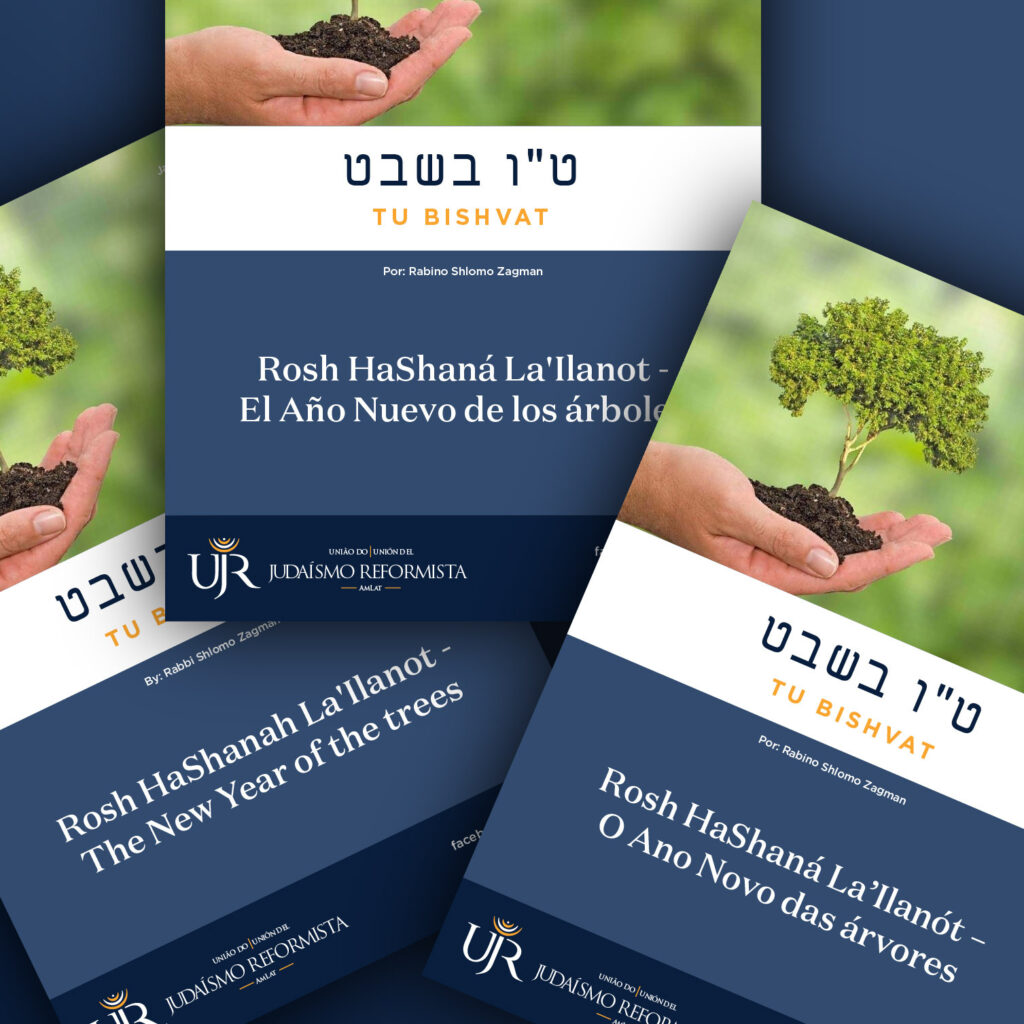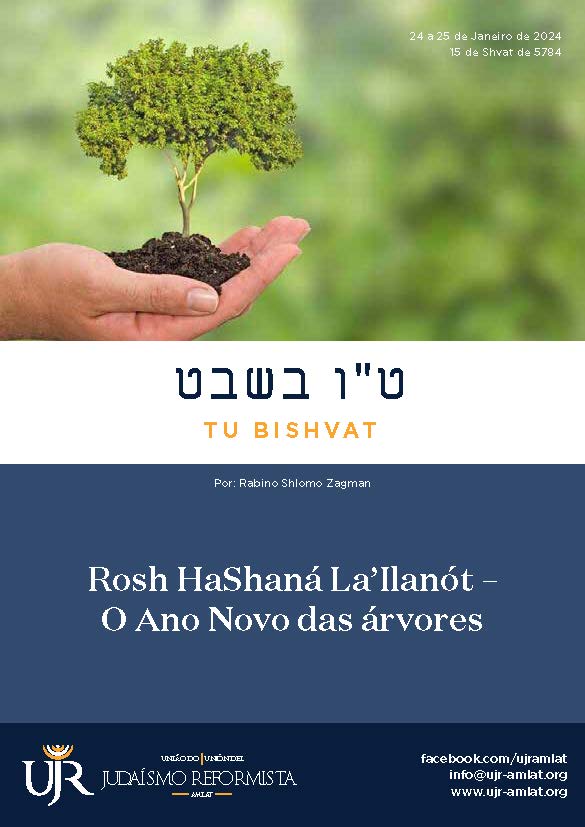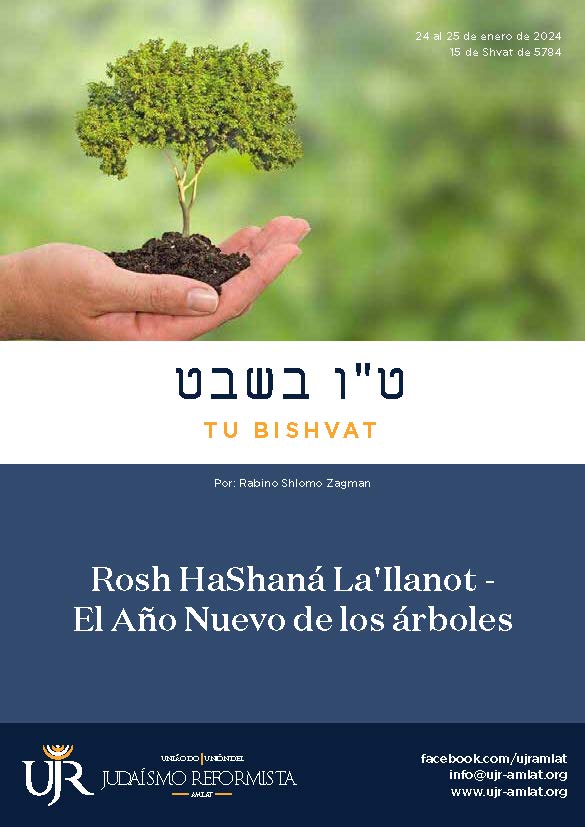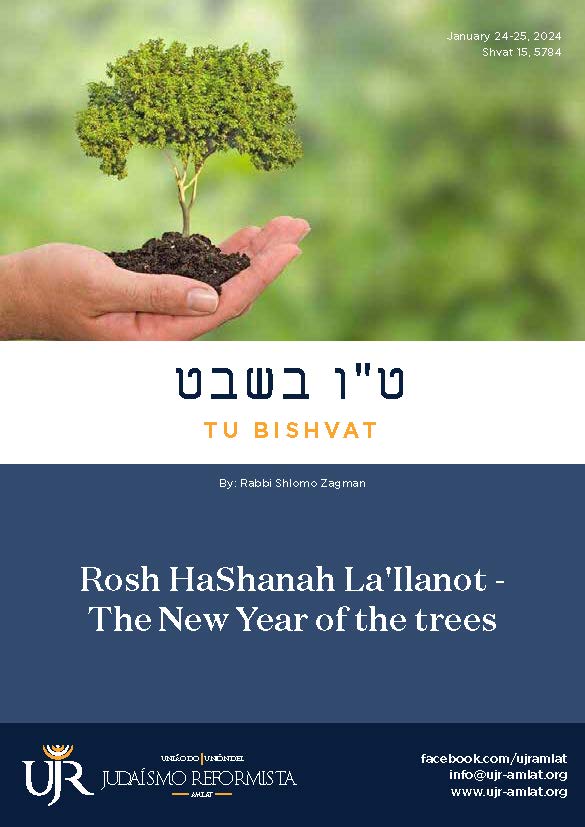Tu BiShvat
ט״ו בשבט
January 24-25, 2024
Shvat 15, 5784
Rosh HaShanah La’Ilanot – The New Year of the trees
By Rabbi Shlomo Zagman
The festival of Tu BiShvat is a great example displaying Jewish tradition as a faith, religion and nation that engages with time, adjusting over thousands of years to always be relevant to our lives today.
Like Chanukah and Purim, Tu BiShvat is a Jewish festival that is not mentioned in the Torah. The first time it appears in our religious literature is at the very beginning of the Mishnah of Rosh HaShanah (around the 1-3rd centuries CE), which lists several dates, each of which is a different New Year. For example, the Mishnah mentions that the first day of Nisan (the month of Pesach), is the New Year for kings and for the cycle of Torah festivities. Meanwhile, the first day of Tishrei (the month of Rosh HaShanah, Yom Kippur and Sukkot) is the New Year for counting the years, the Shemitot (seven-year cycles) and the Jubilees (fifty-year cycles).
The first manifest of Tu BiShvat was marked by the value of the fiscal year, as the day of the year on which accounts were kept of the donations and tithes that the people were obliged to give to support the poor and the priests and Levites who served in the Temple. Despite having no celebration content, Tu BiShvat in its first version had a social value of including all levels of the Jewish people – even those who didn’t own their own land – in contributing to Israel’s spiritual center in Jerusalem.
The Mitzvot (commandments) related to Tu BiShvat belong to the group of Mitzvot that are dependent on the Land of Israel. But despite being the festival of the trees, it has very few roots in religious law (Halachah).
When we have very thin Mitzvot or festivals, in the sense that we lack instructions and practices in religious law, what happens in our tradition is that a wealth of customs (Minhaguim) develops, based on the interpretation of the meaning of the Mitzvah.
After the destruction of the Temple in Jerusalem (70 CE) and the expulsion of the majority of the people to the Diaspora, when Tu Bishvat lost its Temple significance, Tu BiShvat was transformed into a day marking the connection of the people of Israel with their Land. With jews living far away, Tu BiShvat began to be celebrated by eating the fruits of the Land of Israel, such as grapes, figs and dates, which are part of the seven species with which Israel was blessed. As it was not possible to import fresh fruit in the ancient world, dried fruit was consumed. This custom continues to this day. In Israel, too, Tu BiShvat is celebrated by eating dried fruit, raisins and almonds.
In the 17th century, the sages of Tzfat (Safed) took inspiration from the Pesach Seder and formed the Tu BiShvat Seder. This custom spread throughout the Jewish world and many communities made their own Haggadah for Tu BiShvat, containing texts, poems and songs celebrating love for the Land of Israel.
In the 19th century, with the founding of the Zionist movement and the start of the first Aliot (immigrations) to Israel, the feast of Tu BiShvat went through another phase of development and began to be celebrated by planting trees. The importance of conquest, of saving the land in Israel and the Zionist value of agricultural work formed the custom that continues to this day of taking groups from kindergarten age to plant new trees.
In recent years, with the growth of environmental awareness, Tu BiShvat has also acquired educational content about saving the planet and taking care of our ecosystems.
The Mishnah Avot 3:17 says in the name of Rabbi Elazar ben Azaria: A person whose wisdom is greater than his actions, is like a tree that has many branches and few roots, then the wind comes, uproots it and knocks it to the ground. But a person whose actions are greater than his wisdom is like a tree that has few branches but many roots, and no wind can harm it.
Tu BiShvat is the time to also celebrate the beautiful, deep and rich roots of our tradition and to remember that we must always direct our wisdom towards acting in the world and improving it.
—





